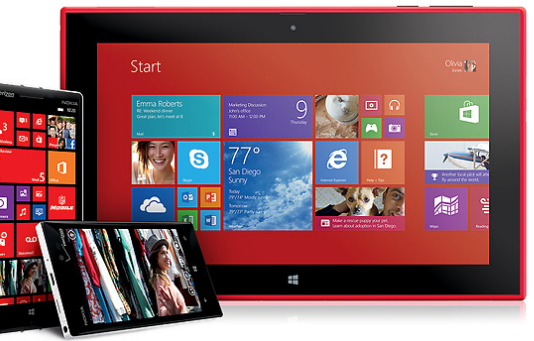Microsoft board initially split on Nokia acquisition: Report

Bloomberg BusinessWeek has published a fascinating story on the backroom politics around former CEO Steve Ballmer's retirement as CEO.

The part of the piece entitled "Microsoft’s Nadella Manages Legacy of Ballmer-Board Split" that I found most interesting is the drama around the decision to buy Nokia's handset business. According to reporter Dina Bass and colleagues, the Microsoft board initially was divided over the wisdom of the move, with Ballmer in favor and founder Bill Gates and unnamed other board members opposed.
Microsoft's current CEO Satya Nadella also was initially against the move, but later changed his mind, the report says.
"The board rejected the first (Nokia) deal as too expensive and complex, including not only the handset division but also a mapping unit Microsoft didn’t need," Bloomberg reported.
Later Ballmer got most of what he wanted, the report claimed, and Nokia's hints of plans to enter the Android phone space may have helped seal the deal. But the damage was done and the rift over Nokia was a key part of the reason Ballmer was encouraged to retire the CEOship earlier than he planned or wanted.
When I interviewed Ballmer about his legacy last November, I asked him whether he still believed Microsoft had made the right move in getting into making hardware, both by building its own Surface tablets and -- once its $7.2 billion purchase of Nokia's handset business is approved -- phones.
Ballmer told me that in spite of OEM pushback, he still was "very enthusiastic" about the decision to get into the hardware business. He said changing industry dynamics meant changing tactics.
While noting that he was not at liberty to discuss the Nokia deal directly because the transaction still had not been approved, here's what Ballmer said when I asked him if he thought the company had done the right thing by getting more deeply into the hardware business, with both Surface and Nokia:
"To say I'm enthusiastic about hardware is almost not the right way to say it. I think that the company has a great strength in software. And we, and particularly in what I would call tools that make people more productive, IT people, developers, and end users. That's where we grew up, tools that make people productive.
"And I might liken this to a newspaper. If you had asked somebody from the Journal what their job was 10 years ago they'd say we put out a newspaper. That wasn't right. What they really do is create high quality editorial and high quality factual news. And they used to express it in a newspaper. Now they express it primarily online.
"Well, we create tools that let people be productive and have serious fun. And users and in some cases IT people and developers, increasingly business, as well, businesses. Nice, okay, we sit here in 2012, 2013, are we a productivity company or are we a software company? Well, what we are is a company that knows how to create great software for productivity and serious fun, but the expression will be through services, and through devices increasingly.
"And maybe it always has been. Nobody ever buys Windows. They buy Windows PCs.
I mean the truth is you could say we've been in the device business ... probably since about the time of Windows '95 -- maybe a virtual device instead of a physical device. But, there's no question Windows defined a class of a device. The problem is in new classes of device it's hard to get leverage simply through the OEM model, whether it's phones or tablets, and so we're doing more first-party hardware than we used to. So yes, but we're trying to express our creativity writing software, particularly software that helps people be productive, communicate, and have serious fun."
With ValueAct's Mason Morfit poised to take a seat on Microsoft's board this month, the tensions around Microsoft's hardware forays may not be over. ValueAct is believed to be in favor of Microsoft focusing on its enterprise and software businesses, rather than on Surface, Xbox and Windows Phone.
Nadella has said publicly he's onboard with the "One Microsoft" gameplan and believes, as now-board-member Ballmer and Microsoft board chairman John W. Thompson do, that Microsoft needs to be a player in both consumer and enterprise to compete in the evolving industry.
Microsoft execs have said they expect the Nokia transaction to be approved in the first calendar quarter of this year, but I wonder whether alleged Google/Samsung patent concerns may delay Chinese regulators' approval of the transaction beyond that date. Once the deal does go through, as it is still expected to, I'd think Microsoft brass will rush to integrate Nokia's products and new 32,000 employees Microsoft will acquire to try to head off any further board dissension.